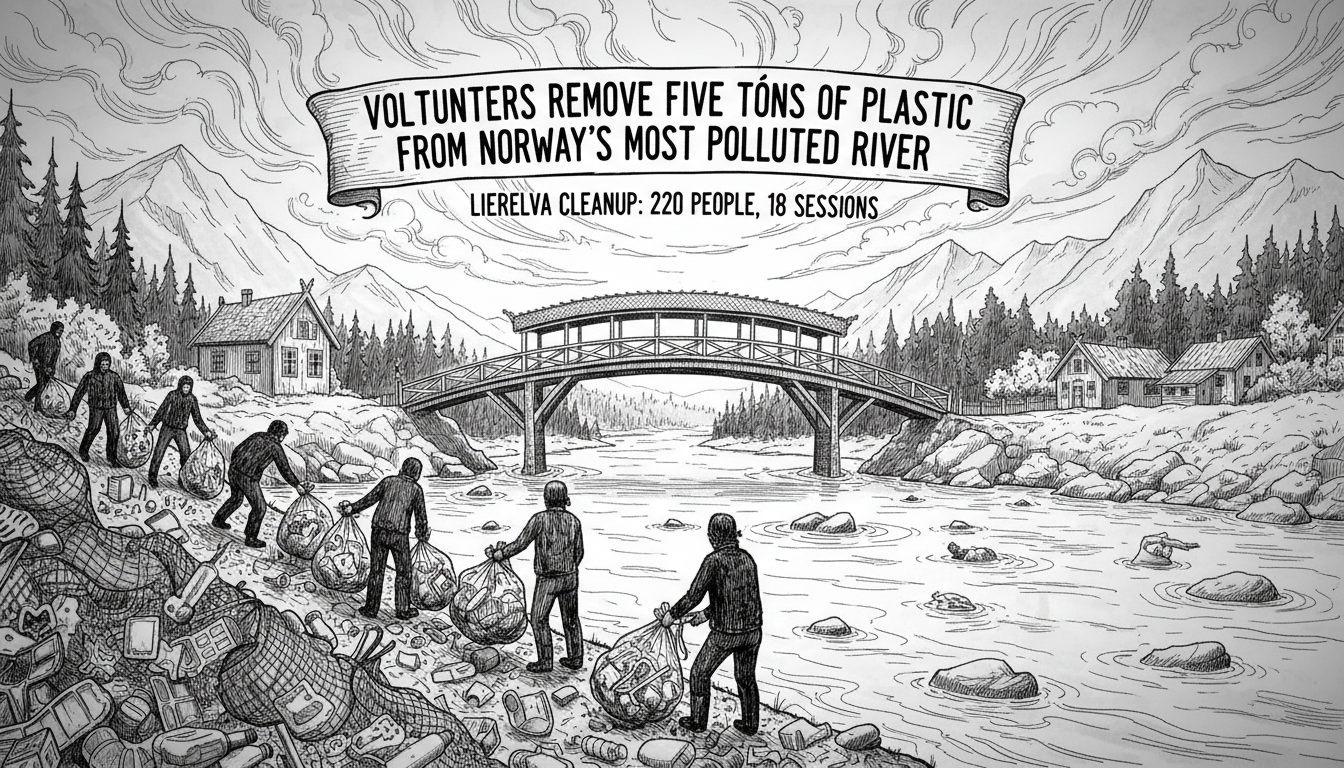Volunteers in Norway have cleared over five tons of plastic from what researchers previously identified as the country's most plastic-polluted river. The massive cleanup effort involved 220 volunteers across 18 cleanup sessions since Easter.
Dag Reynolds, safety and diving coordinator for the environmental group Plastpiratene, described the initial state of Lierelva river as resembling a post-apocalyptic horror film. Plastic hung from trees up to three meters above ground, trapped there by fluctuating water levels.
"It was terribly bad," Reynolds said. "But the designation as Norway's most polluted river actually helped people understand the seriousness."
Researchers from Norwegian Research Centre Norce had previously examined 84 Norwegian rivers and found Lierelva contained an average of one meter of plastic per meter of river. The shocking report prompted local action.
Despite initial challenges attracting volunteers, community spirit grew steadily. Reynolds noted that people began independently collecting plastic and leaving bags at designated collection points without any coordination.
The cleanup revealed bizarre items in the river, including what appeared to be stone blocks but turned out to be moss-covered polystyrene. Volunteers also found dangerous industrial waste, numerous empty bottles, approximately 200 empty snus boxes, and even household items apparently discarded after a breakup.
"The saddest find was likely the result of a brutal divorce," Reynolds said. "A TV, sofa, coffee table, Christmas tree stand, and a wedding picture."
Amid the pollution, volunteers made one positive discovery an freshwater pearl mussel, a species thought extinct in Lierelva since 2009.
Local schools joined the effort, with approximately 120 students from Lierbyen secondary school participating. Teacher Ida Meyer said students reacted with disbelief at the amount of trash.
"They were quite shocked by the large amounts of plastic and other waste," Meyer said. The cleanup sparked healthy competition among students comparing how many bags they collected.
The school has incorporated river monitoring into their science curriculum for years and hopes to make spring cleanups an annual tradition.
Lier Mayor Kjetil Kivle expressed pride in the community effort, noting that local businesses and the Trade Environment Fund supported the cleanup with 1.5 million Norwegian kroner.
While Kivle doubts Lierelva still holds the title of Norway's most plastic-polluted river, he acknowledges the work continues. "Keeping the river clean is an eternal project," he said.
The cleanup demonstrates how small actions collectively create substantial impact, though the river remains far from plastic-free. This massive volunteer effort shows communities can tackle environmental challenges when working together, even as the ongoing nature of plastic pollution requires sustained commitment.
